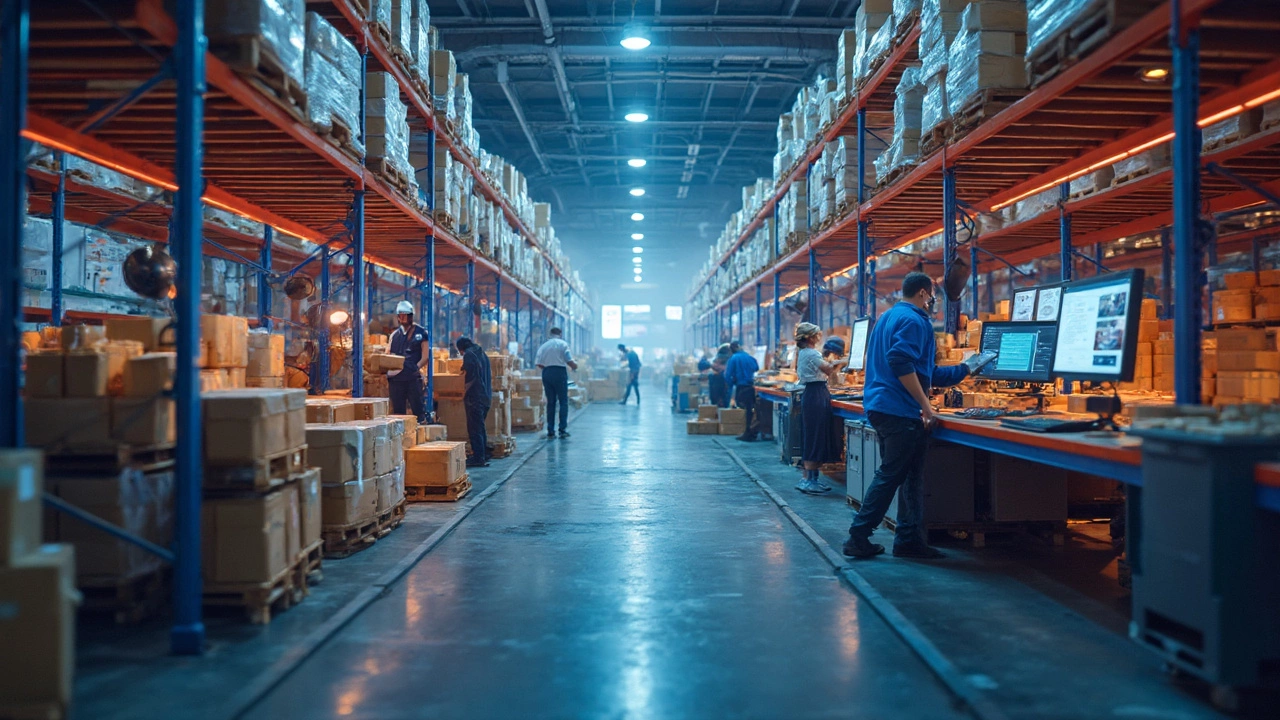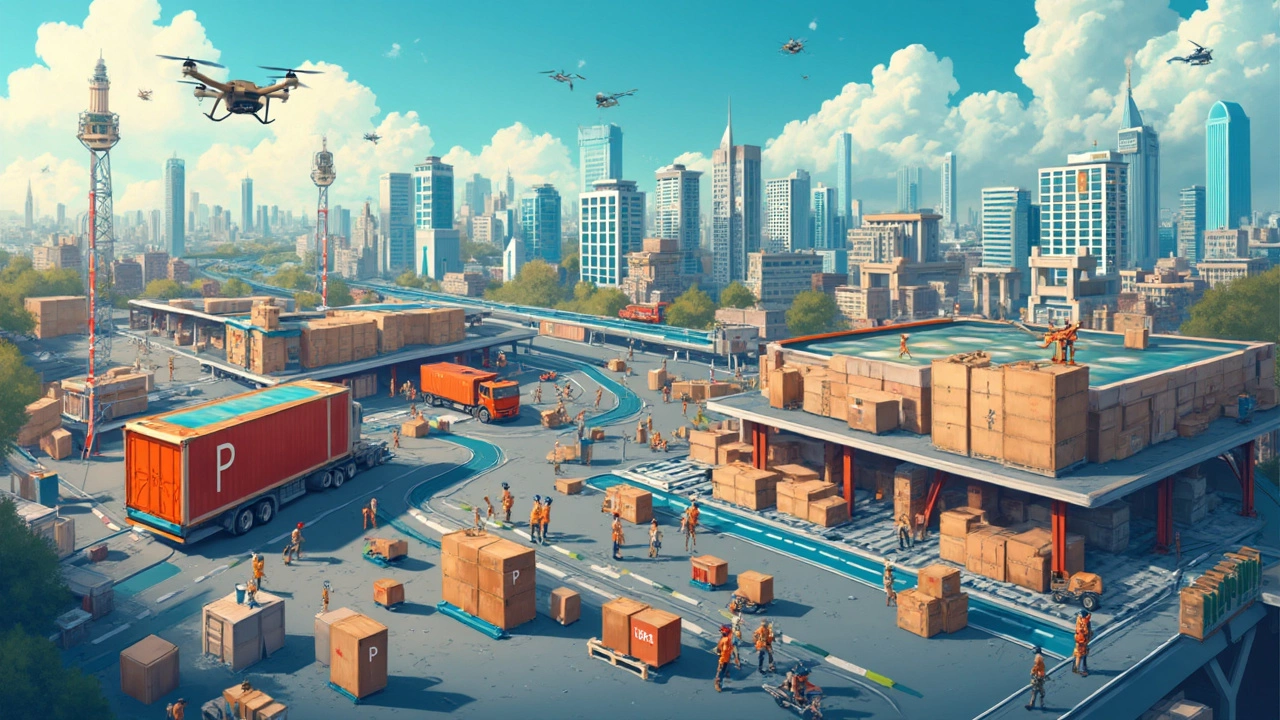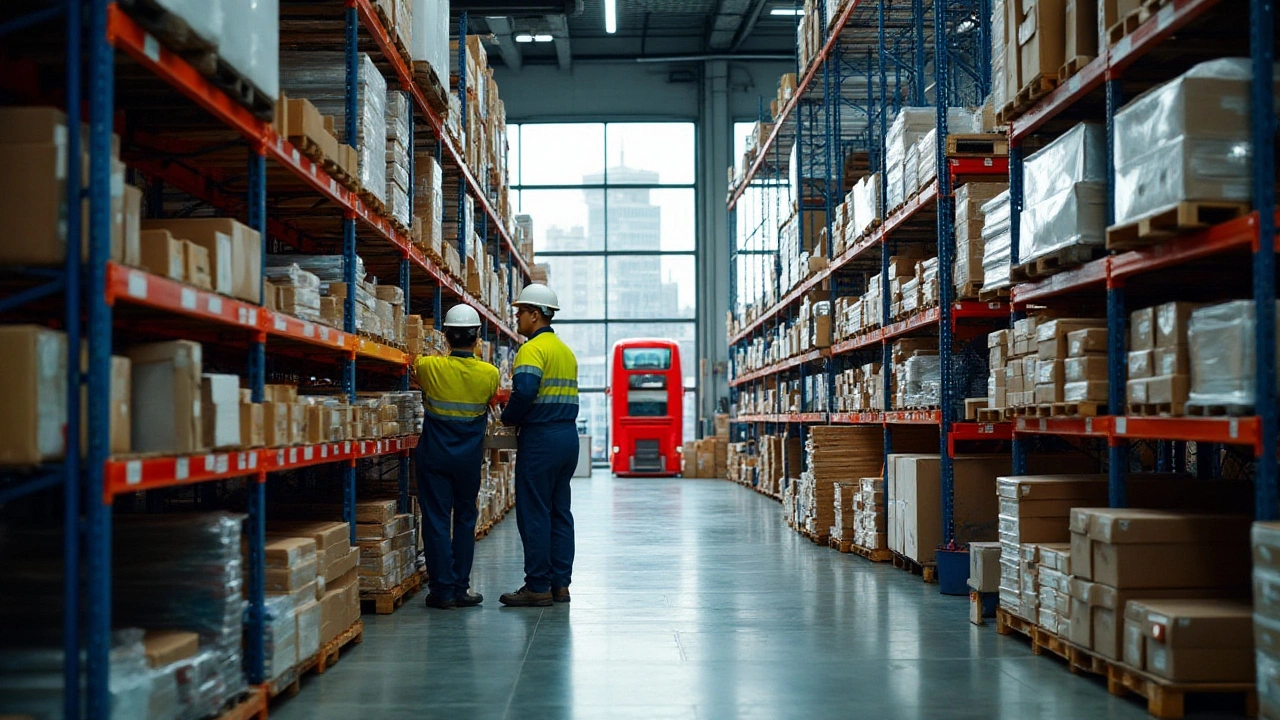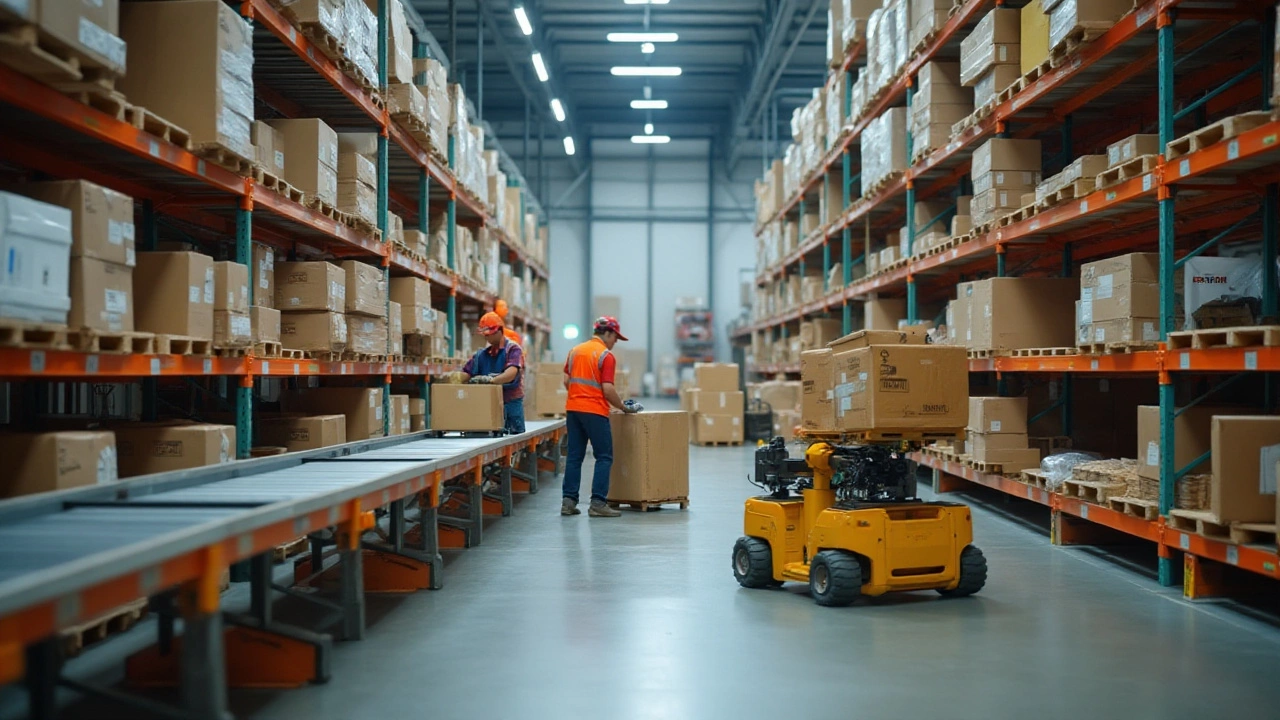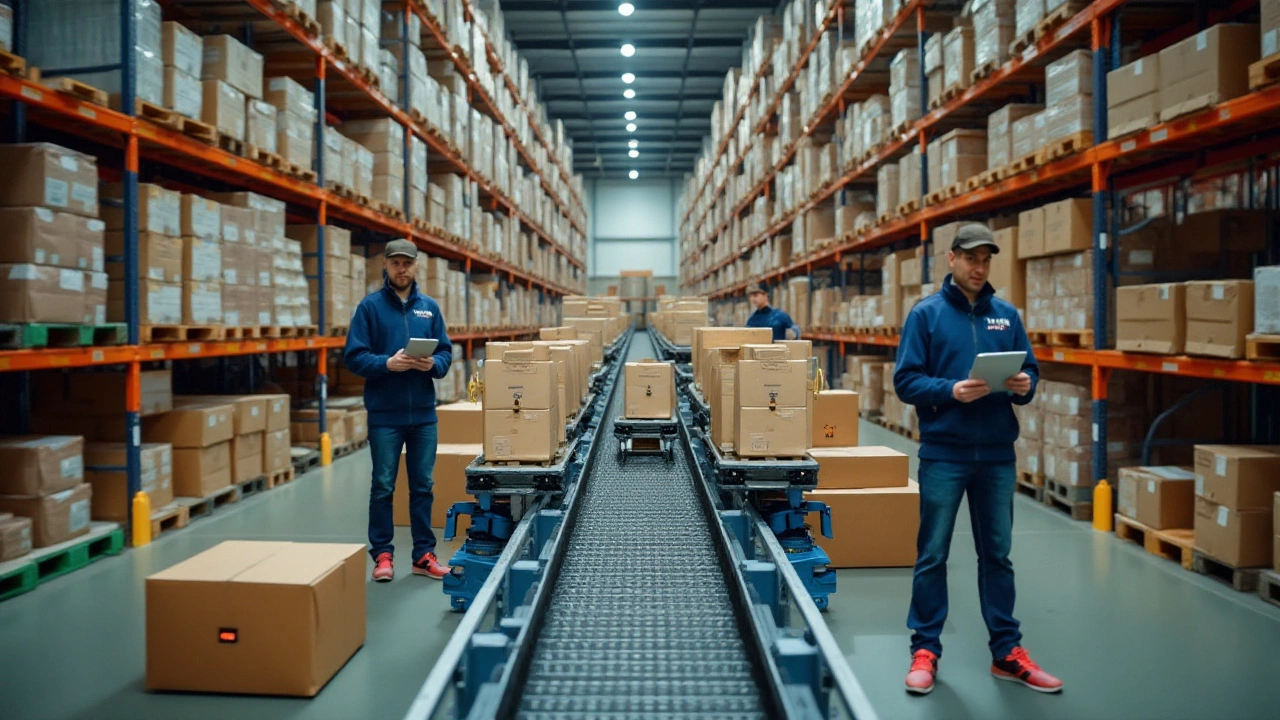e-commerce delivery tips and logistics you need right now
If you sell online or shop frequently, the biggest hassle is often getting parcels from point A to point B without breaking the bank. Luckily, you don’t have to guess which courier to use, what the real cutoff times are, or how to avoid hidden fees. Below you’ll find the most useful advice pulled from our recent e‑commerce posts, all in plain language.
Choosing the cheapest overnight or same‑day option
When speed matters, you’ll hear names like UPS, FedEx, DHL and the national postal services. Our deep‑dive into "Who has the cheapest overnight shipping?" shows that the best price depends on package size, weight, and destination. For a small, 2‑kg parcel within the UK, Royal Mail Special Delivery often beats the private couriers. For heavier loads or cross‑border shipments, DHL can be cheaper than FedEx once you factor in fuel surcharges.
Don’t forget to check live rate tools before you book. A quick comparison of rates at the moment of checkout can shave off up to 15% of the cost. Also, look for accelerated or online‑only programs – many carriers offer discounts if you ship from a business account or use their API.
Understanding courier fees and last‑mile risks
Courier fees aren’t just a flat rate. They’re built from distance, urgency, size, and any extra services like insurance or signature proof. Our "Courier Fees Explained" article breaks down each component so you can see where the money goes and where you can cut back. For example, opting for a drop‑off at a local hub instead of a door‑to‑door pick‑up can reduce the fee by 20%.
Last‑mile delivery risk is another hidden cost. Late‑night deliveries, remote locations, and weather can all cause delays. By planning cut‑off times carefully (see our "Cutoff Time for Overnight Delivery" guide) you avoid missing the daily dispatch window and keep your customers happy.
Even after hours, many couriers now offer evening delivery slots. If your customers expect parcels after work, ask your carrier about "courier after hours" services. It often costs a bit more, but the added convenience can boost repeat sales.
Finally, keep an eye on prohibited items. Sending batteries, chemicals, or certain liquids can lead to hefty fines or returns. Our "Courier Restrictions Explained" checklist tells you exactly what you can’t ship, so you stay compliant.
With these basics covered, you’ll feel more confident navigating the e‑commerce logistics maze. Whether you’re figuring out the cheapest way to ship a 5‑pound box next day or planning a large‑scale fulfillment strategy, the right knowledge saves time, money, and headaches.
Ready to put these tips into practice? Grab the relevant post from our e‑commerce tag and start optimizing your shipments today.
E-commerce Explained: What It Is, How It Works, and Real-Life Examples
Dive into what e-commerce really is, explore real-world examples, and pick up practical tips for online selling or buying—all in simple, everyday language.
E-commerce for Beginners: The Basics and Beyond Logistics
Curious about how e-commerce actually works behind the scenes? This article breaks down what e-commerce is, how beginners can set up shop, and why logistics play a huge role in making it all run smoothly. Packed with tips on choosing products, shipping faster, and avoiding beginners' mistakes. Find out what really happens from checkout to delivery truck, and see how even small details can make or break an online store. If you're just starting out, this guide gives you a clear picture—without all the complicated jargon.
How Logistics Makes Money in E-Commerce
E-commerce logistics isn't just about moving stuff from point A to B; it's about making money efficiently. We'll explore how logistics companies leverage technology, streamline processes, and cut costs to increase their profit margins in the fast-paced world of online shopping. Learn about the strategies they use to thrive in a competitive market. Discover the role of data analytics and customer satisfaction in boosting logistics revenue. See how every link of the supply chain offers opportunities for profit.
Unpacking the Most Popular E-commerce Giant
In the vast world of online shopping, one company consistently sits at the top: Amazon. Known for its seamless logistics and vast product selection, it remains a leader in e-commerce. This article explores how Amazon dominates the market, the logistics innovations it employs, and useful insights for small businesses looking to learn from its success.
E-Commerce and Logistics: A Crucial Connection for Success
E-commerce and logistics are inseparable partners in the world of online business. For businesses striving for seamless online transactions, it's vital to understand how logistics impacts timely delivery and customer satisfaction. This article explores the dynamic between e-commerce and logistics, offering insights into how integrating these systems can improve efficiency and growth. Learn practical tips to enhance your logistics operations and boost your e-commerce success.
Discover the 5 P's of Logistics in E-Commerce
E-commerce logistics relies on an essential framework known as the 5 P's of Logistics: Product, Price, Place, Promotion, and People. Understanding these elements can streamline operations, enhance customer satisfaction, and boost profitability. This article unfolds each aspect, providing insights and practical tips. Dive in to optimize your supply chain and improve your business's efficiency.
Unlocking the Secrets of the 4 P's in E-commerce Logistics
Understanding the 4 P's of logistics—Product, Process, People, and Performance—is crucial for optimizing e-commerce operations. These elements work in harmony to ensure that products reach customers efficiently and cost-effectively. In an ever-evolving market, e-commerce platforms must focus on logistics to improve customer satisfaction and streamline supply chain management. Delving into these four components reveals the essentials of modern logistics strategies that help businesses thrive online.
Understanding the Essential Stages of E-commerce Supply Chain
In the fast-paced world of online shopping, the e-commerce supply chain plays a crucial role in delivering products efficiently. Understanding its stages is essential for both businesses and customers to ensure a smooth shopping experience. From sourcing raw materials to delivering the final product to the customer, each stage requires optimization and coordination. By streamlining these processes, businesses can reduce costs, meet customer expectations, and improve overall satisfaction.
Understanding E-commerce: The Backbone of Online Business Logistics
E-commerce has transformed the retail landscape, making it easier for businesses to reach consumers globally. This article delves into the intricacies of e-commerce logistics, which is essential for the smooth functioning of online sales. Effective logistics ensure that products move efficiently from seller to buyer, leveraging advanced technologies and partnerships. Readers will learn about the key components, challenges, and strategies to optimize e-commerce delivery systems. Aimed at both novices and experienced professionals, the piece provides insights on how to keep businesses competitive in the digital age.
Understanding the Differences Between E-commerce and Online Selling
While often used interchangeably, e-commerce and online selling are distinct concepts within the digital marketplace. E-commerce encompasses a broad range of activities and processes that support the online business ecosystem, including the infrastructure and logistics. Online selling refers specifically to the transaction of selling goods or services over the internet. Understanding their differences helps businesses streamline operations and enhance customer experiences. This article delves into these distinctions, providing insights and practical tips for those engaged in the digital economy.
© 2026. All rights reserved.



